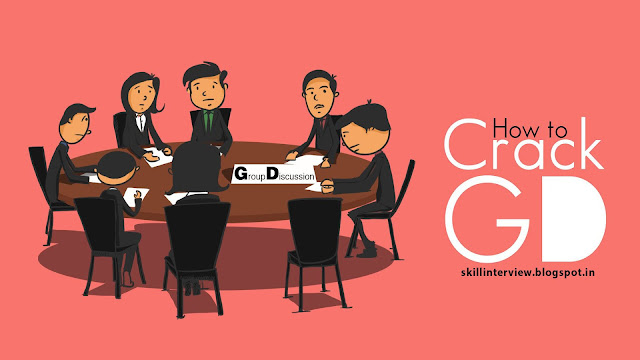GROUP DISCUSSION – WHAT YOU MUST DO
What you must do in G.D:
·
Keep to the point.
·
Make original points and back them by
substantial reasoning and not an unfounded opinion.
·
If some other member has already made the
point you wanted to make, do not worry. Even here, you can either support or
oppose the point by sound reasoning, or add some additional information that
might have been left out.
·
Listen to the other participants patiently,
attentively and carefully and make a mental note of what they say. If their
points are good, readily accept them but with reasoning, and not by just saying
“I agree with the views of so and so”. If you find their arguments not
acceptable, do not just say “I do not agree with the views of so and so”, instead
bring in your own strong arguments to refute them.
·
Whatever you say must be with a logical flow.
State you position, give a reason for your holding so and validate it with an
example as far as possible.
·
Make only accurate statements.
·
Modulate the volume, pitch and tone of your
voice so as to suit the nature of your point.
·
Show flexibility in your views. Don’t hesitate
to accept criticism. If someone points to flaws in your argument, do not feel
offended or insulted. Instead, change your original opinion willingly, if
proved wrong.
·
Be considerate to the feelings of others. It
being a friendly discussion, co-operation, not confrontation, is a must. You
need not shout at others. Use polite and parliamentary language. If someone has
not spoken and wishes to say something, you can request others to give him a
chance. Your helpful, accommodative and encouraging attitude will surely be
appreciated by the examiner.
·
If possible, make an attempt at initiating the
discussion. But try to make a good job of it by offering a general introduction
to the topic and briefly laying the scope of the discussion. Even if you could
not be the first speaker, try to get an opportunity as early as possible, for
it is absolutely essential that you talk and express your views. Not only this,
you must talk as much as possible, effectively and sensibly, to impress others.
·
If you have reasonable doubts, you can ask
questions from others and, if necessary, seek clarifications.
·
Try to get your turn. Don’t think someone else
will offer you an opportunity to speak.
·
As soon as you find your argument has been
refuted by someone else, you must try to justify your point of view by bringing
in fresh ideas or arguments.
·
If more than one candidate starts speaking
simultaneously. You can request for order and appeal for co-operation. Taking
lead in such situations shows your coordinating ability.
·
Be an active and interested participant.
Remain cheerful, smiling and alive to whatever is going on in the group.
·
Listen to the initial briefing of the GTO/examiner
carefully. Grasp and understand correctly the topic given for discussion.
·
While speaking, address to the whole group,
looking each participant in the eye in turn.
·
Be attentive to the person who is speaking and
make sure that you are looking at him.
·
Talk with confidence and self-assurance as a
mature person would do.
·
Sit straight and upfront. To emphasize your
point, make use of hands and facial expressions.
·
If the discussion is straying from the
expected course, take the initiative of bringing it back on track by gibing a
new directional point.
·
What you say must be audible and clear to the
group. So, speak slowly, deliberately and without rushing your works.
·
Your voice must be crisp, energetic and
forceful so as to gain the attention of the group. Be assertive without being a
bully.
If the discussion is
stucking on one point for too long, the quality will definitely suffer. In such
a case try and move the discussion forward by highlighting a new aspect or
angle to it.











0 comments:
Post a Comment